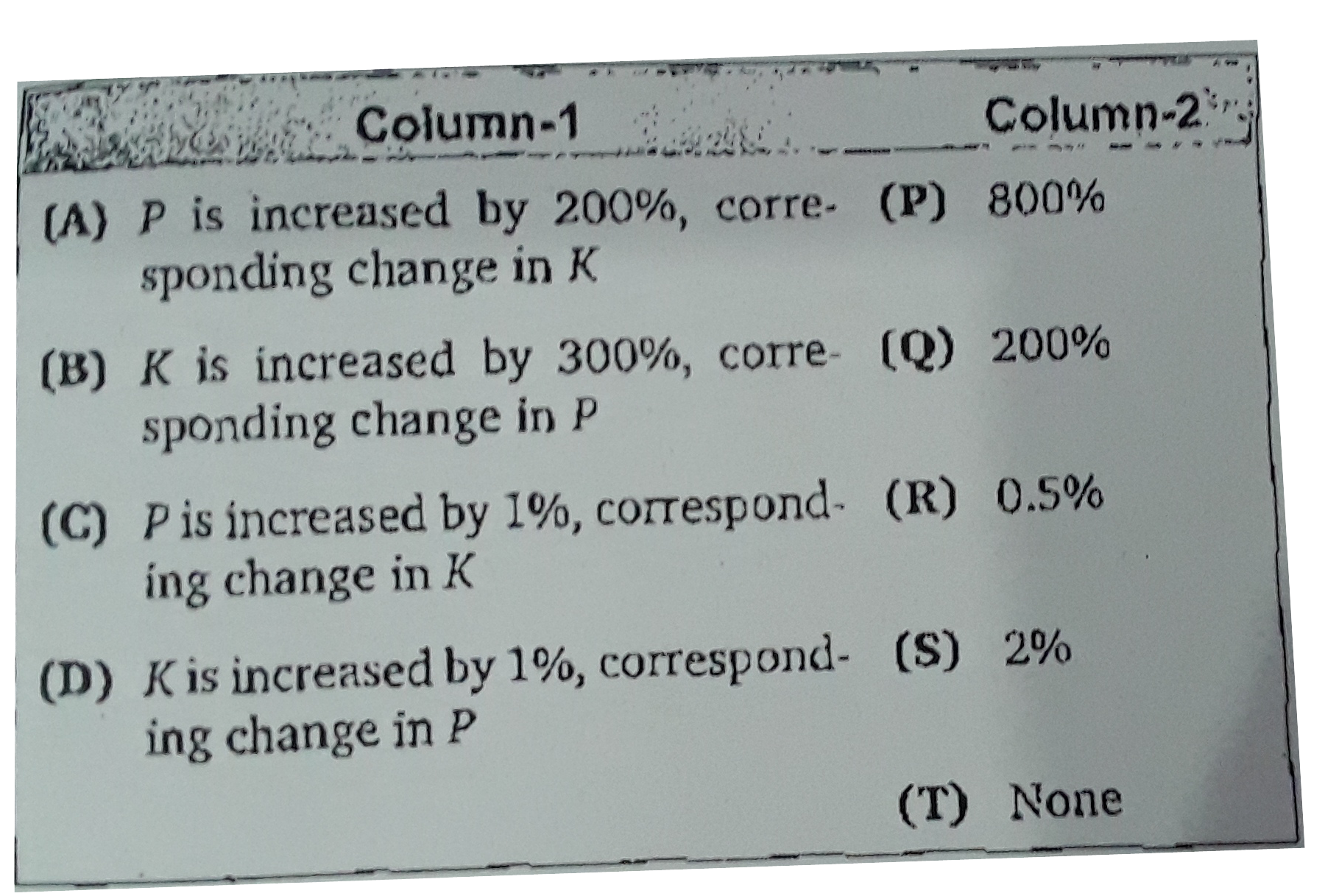Match the following: (P = momentum of particle, K = kinetic energy of particle)

The correct Answer is:(a →p, B→q, C →s, D → r
(a) K=p22m
⇒3p22m=9(p22m=9K
∴ % increase in K = 80%<br>(b)p=sqrt(2Km)<br>p^(') = sqrt(2(4K)m) = 2sqrt(2Km) = 2p
∴% increase in p = 100%.<br>(c)p = sqrt(2Km) = (2Km)^(1/2)<br>rArr K6(') = (101/100)^(2)p/2m = 2%<br>(d)%∈crease∈p =1/2(%Increase∈K)=0.5%
Topper's Solved these Questions
- CENTRE OF MASSBOOK - DC PANDEY ENGLISHCHAPTER - CENTRE OF MASSEXERCISE - Medical entrances gallery
27 Videos
- CENTRE OF MASSBOOK - DC PANDEY ENGLISHCHAPTER - CENTRE OF MASSEXERCISE - Assertion and reason
21 Videos
- CALORIMETRY AND HEAT TRANSFERBOOK - DC PANDEY ENGLISHCHAPTER - CALORIMETRY AND HEAT TRANSFEREXERCISE - Medical entrance s gallery
38 Videos
- CENTRE OF MASS, IMPULSE AND MOMENTUMBOOK - DC PANDEY ENGLISHCHAPTER - CENTRE OF MASS, IMPULSE AND MOMENTUMEXERCISE - Comprehension type questions
15 Videos
Similar Questions
Knowledge Check
For a moving particle (mass m, velocity v) having a momentum p, which one of the following correctly describes the kinetic energy of the particle?
Ap22mBp2mCv22mDv2m
If the linear momentum of a prticle is known can you find its kinetic energy? If the kinetic energy of a particle is known can you find its linear momentum?
View SolutionConsider a collision between two particles one of which is at rest and the other strikes it head on with momentum P1. Calculate the energy of reaction Q in terms of the kinetic energy of the particles before and they collide.
View SolutionA particle of mass m, kinetic energy K and momentum p collides head on elastically with another particle of mass 2m at rest. After collision, :
Column IColumn II(A)Momentum of first particle(p)3/4p(B)Momentum of second particle(q)−K/9(C)Kinetic energy of first particle(r)−p/3(D)Kinetic energy of second particle(s)8K9(t)None
View SolutionConsider the following two statements:
A. Linear momentum of a system of particles is zero.
B. Kinetic energy of a system of particles is zero.
View SolutionOn decreasing the heat, the kinetic energy of particles also decreases.
View SolutionDe-Broglie wavelengths of the particle increases by 75% then kinetic energy of particle becomes.
View SolutionConsider the following two statements:
A The linear momentum of a particle is independent of the frame of reference.
B. The kinetic energy of a particle is independent of the frame of reference
View Solution
